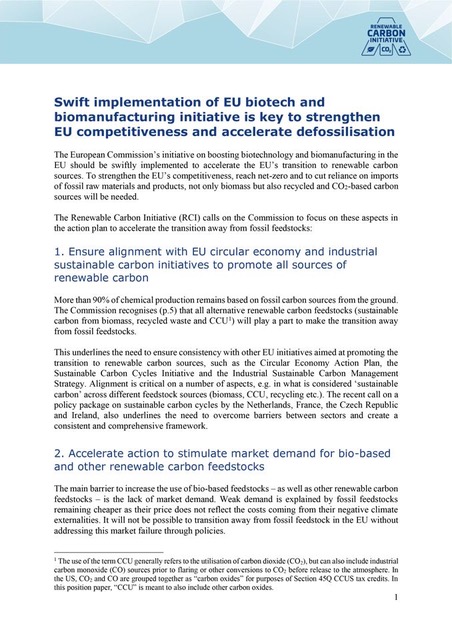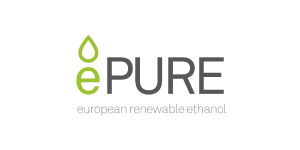
1) General Meeting of the RCI
The 4th General Meeting of the RCI took place from 30 September to 1 October 2024, at the Hyatt Regency in Cologne. The event witnessed a strong turnout, with 55 RCI members attending in person and an additional 11 joining remotely.
The agenda on the first day commenced with a reflective look back at the projects and activities of the year 2024. The results of a comprehensive member survey were presented, providing valuable insights into member perspectives and priorities. The day ended with a discussion and member voting on new proposals that will shape the direction of the RCI in 2025.

Day two of the meeting featured presentations from eight RCI members, covering a diverse range of topics. These sessions not only highlighted innovative ideas but also fostered knowledge-sharing and collaboration among attendees.
Throughout both days, many opportunities for networking were facilitated during coffee breaks, lunches, and a specially organised dinner at Bona me. The pre-meeting dinner held the evening before at the brewery “Brauhaus Kaiser Konstantin” in Deutz provided an informal setting for early arrivals to connect and exchange ideas, setting a positive tone for the main proceedings.
Overall, the 4th General Meeting of the RCI was deemed a success, fostering productive discussions, informative presentations, and meaningful networking opportunities.
2) Publication of RCI’s Position Paper on “Swift implementation of EU biotech and biomanufacturing initiative is key to strengthen EU competitiveness and accelerate defossilisation”

On 14 September 2024, RCI has published the position paper “Swift implementation of EU biotech and biomanufacturing initiative is key to strengthen EU competitiveness and accelerate defossilisation” which is referring to the European Commission’s initiative to boost biotechnology and biomanufacturing in the EU (published in March 2024). RCI believes that the initiative must be swiftly implemented to accelerate the EU’s transition to renewable carbon sources. We highlight three key actions:
- 1) Align with Circular Economy policies to ensure consistency across EU initiatives in promoting renewable carbon from biomass, but also recycling and CCU.
- 2) Boost market demand to address the lack of current demand for renewable feedstocks – in particular in chemicals and materials – by implementing policies to make fossil alternatives less competitive.
- 3) Enable a fossil-to-renewable carbon transition by repurposing current fossil-based manufacturing to use renewable feedstocks. This requires clear sustainability criteria, access to various biomass sources, and broader definitions of biomanufacturing processes to achieve this transition
These action are critical to strengthen the EU’s competitiveness, reach net-zero and to cut reliance on imports of fossil raw materials and products.
Find the position paper here: https://renewable-carbon.eu/publications/product/swift-implementation-of-eu-biotech-and-biomanufacturing-initiative-is-key-to-strengthen-eu-competitiveness-and-accelerate-defossilisation-pdf/
3) RCI Ambassador Activities:
Meeting with several DGs of the European Commission in Brussels with DG AGRI, RTD and ENVI on CCU plastics
On 24 and 25 September, the executive office of RCI visited Brussels to discuss topics of relevance with different DGs of the European Commission. The meetings focused on various topics of relevance for the involved units, for example on biomass availability, the potential benefits of including food crops for industrial use, CCU-based plastics, ideas for policy framework that enables renewable carbon, collaboration and networking opportunities, as well as debates on the new Commission term and how the topic of renewable carbon can be part of a Clean Industrial Deal. Overall, we are quite hopeful that the next Commission term will tackle several aspects of relevance to facilitate a transition to renewable carbon.
4) RCI member portraits
This month, we would like to introduce you to BioBTX (NL), one of our start-up members with an innovative solution towards producing aromatic hydrocarbons from renewable carbon feedstock.
Here are five interesting facts about BioBTX (NL):
- Circular Chemistry: BioBTX focuses on producing BTX (benzene, toluene, and xylenes) from renewable biomass and plastic waste, promoting a circular economy.
- ICCP Technology: They use innovative ICCP technology to convert end-of-life waste plastics and biomass intocircular and sustainable chemical building blocks, reducing landfill waste and incineration.
- Environmental Impact: Their process helps lower CO₂ emissions by replacing fossil-based BTX production with sustainable alternatives.
- Mini Plant Innovation: BioBTX has developed a flexible mini plant for rapid research and testing, processing 100 grams of feedstock per hour.
- Broad Applications: The sustainable BTX chemicals are used in diverse industries, including pharmaceuticals, automotive, and plastics.
Find out more about BioBTX here: https://renewable-carbon-initiative.com/members/biobtx/
Stay tuned for more member portraits from RCI!
5) New members

Delft Advanced Biofuels (NL), commonly referred to as DAB.bio, is a pioneering biotechnology company that focuses on developing advanced biomanufacturing technologies. The company aims to revolutionise the large-scale production of chemicals and fuels from renewable sources through innovations in microbial fermentation and bioprocessing. Through its proprietary, patented extractive fermentation technology, DAB.bio has developed a groundbreaking reactor and process design that enables in-situ product removal directly from the reactor, significantly reducing both operational and capital costs in biomanufacturing.
DAB.bio is actively working with a range of clients on the production of biomaterials, supporting their transition to sustainable materials.
DAB.bio aims to collaborate with like-minded partners to advance new biomanufacturing technologies and drive the future of renewable production methods.

IKEA (SWE) is a global furniture dealer offering home furnishing products, services and solutions with the ambition to support a healthy and sustainable life at home. The IKEA vision, to create a better everyday life for the many people, is our inspiration. The largest portion of the IKEA climate footprint comes from materials and IKEA products used in customers’ homes.
IKEA is committed to drastically reducing greenhouse gas emissions across the IKEA value chain. To meet the challenges of unsustainable consumption, climate change and growing inequality, IKEA is taking ambitious steps towards a more sustainable future through collaboration with partners, co-workers and customers. IKEA is transitioning towards a circular business built on clean, renewable energy and regenerative resources, de-coupling virgin non-renewable material use from our growth. The aim is to end its dependency on virgin non-renewable materials and fossil fuels.

On (CH) is a Swiss sportswear company known for its high-performance running shoes, clothing, and accessories. The brand is recognised for its unique “CloudTec®” cushioning technology, which enhances running comfort and performance. In terms of sustainability, On is committed to minimising its environmental impact through various initiatives. These include using recycled materials, developing circular product systems, and working towards achieving net-zero carbon emissions. The company also focuses on transparency in its supply chain and strives to create products that are both innovative and environmentally responsible.
6) New partners

ePURE (BE) represents the interests of European renewable ethanol producers to the EU institutions, industry stakeholders, the media, academia and the general public. Based in Brussels, ePURE speaks for 41 member companies and associations, with around 50 plants across the EU and UK, accounting for about 85% of EU renewable ethanol production. The rganization, established in 2010, promotes the beneficial uses of ethanol throughout Europe.
Source
Renewable Carbon Initiative, original text, 2024-09-30.
Supplier
European Commission
Renewable Carbon Initiative (RCI)
Share
Renewable Carbon News – Daily Newsletter
Subscribe to our daily email newsletter – the world's leading newsletter on renewable materials and chemicals










